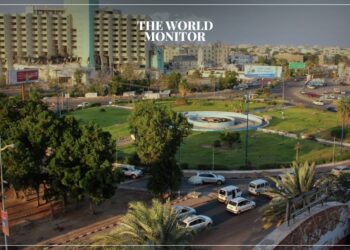In Addis Ababa today, a fresh round of trilateral negotiations commenced concerning the Grand Ethiopian Renaissance Dam (GERD), bringing together representatives from Ethiopia, Egypt, and Sudan.
The Ethiopian Foreign Ministry, in a statement released earlier, highlighted the words of their lead negotiator, Ambassador Seleshi Bekele, who opened the day’s discussions. He emphasized that the recent successful completion of the dam’s fourth filling was in line with the 2015 Declaration of Principles. Bekele reiterated Ethiopia’s commitment to a negotiated, amicable solution through the ongoing trilateral process, championing fair and reasonable utilization of the Nile waters as detailed in the 2015 agreement.
The statement also shared opening remarks from the Egyptian Water and Irrigation Minister, Dr. Hany Swelim, and Sudan’s acting Water Minister, Doweilbit Abdel Rahman Mansour. Both expressed optimism about reaching a consensus on GERD.
In a post on the official Egyptian government Facebook page (noting that the platforms under Meta, including Facebook and Instagram, are banned in Russia for extremist content), Dr. Swelim announced the initiation of the new round of talks in the Ethiopian capital. He stressed Egypt’s consistent approach of seriousness and good faith in the negotiations. Swelim hopes for a balanced and just agreement that protects Egypt’s water security, upholds its national interests, and considers the shared benefits for all three nations. However, he also cautioned against unilateral actions that breach international law, potentially hampering the negotiation process.
Swelim emphasized the need to expedite efforts to reach the required agreement, especially considering available technical and legal solutions, ensuring a legally binding agreement on the dam’s operation that aligns with the interests of all three countries.
It should be noted that the Ethiopian Prime Minister announced the fourth and final filling of the Ethiopian Renaissance Dam on September 10th of this month. This step was described by the Egyptian Foreign Ministry as a “continuation of the violation of the Declaration of Principles signed between Egypt, Ethiopia, and Sudan in 2015.”
The Egyptian Foreign Ministry, in a statement on its Facebook page, stated that “Ethiopia’s adoption of such unilateral actions is a disregard for the interests and rights of the two downstream countries and their water security guaranteed by the rules of international law.”
Last month, Egypt hosted a new round of talks about the Renaissance Dam, with the participation of negotiating delegations from Egypt, Sudan, and Ethiopia. During this time, the head of the commissioned Ethiopian delegation, Seleshi Bekele, asserted that “there are benefits that Egypt and Sudan will reap from the completion of the construction and operation of the Ethiopian Renaissance Dam.”
The Egyptian government announced that “the negotiating round concluded in Cairo did not witness tangible changes in the Ethiopian side’s position,” indicating that “the goal of the negotiations is to reach an agreement on the rules for filling and operating the Renaissance Dam.”
There has been a dispute between Egypt and Ethiopia for years over the construction of the Renaissance Dam, while Sudan and Cairo have repeatedly asked Ethiopia to halt the filling of the Renaissance Dam reservoir, awaiting a trilateral binding agreement on the dam’s operation, considering it to be the largest in Africa.
Egypt, which relies on the Nile for 97% of its water needs, believes that the Renaissance Dam poses an “existential” threat to it.






